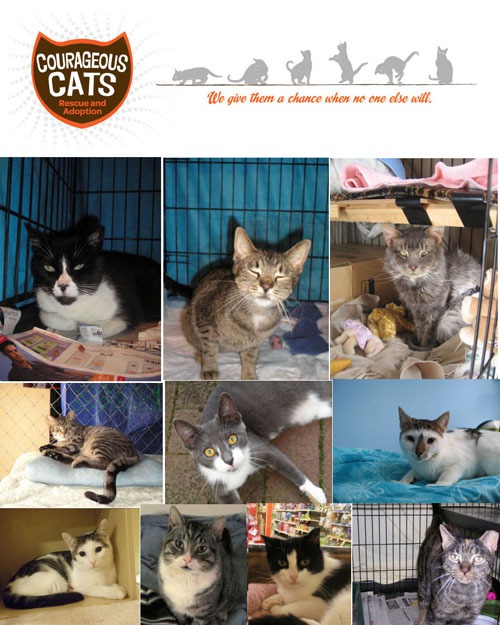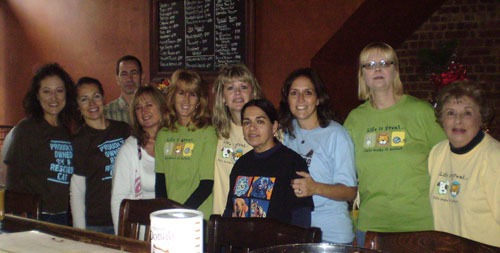Malverne woman answers call of the cats
She may not seem like a stereotypical "cat lady," but Maria Gross is slowly becoming known as just that in several Long Island neigborhoods. But, unlike those typically depicted as said cat ladies, Gross' focus is rescuing feral cats and reducing their rapidly growing population.
When she started the organization Courageous Cats in July 2007, Gross was already deep into her mission, which had begun about a decade prior, when she rescued a feral cat named Courageous who later turned out to be, in her words, "a great pet." Gross realized then the importance of giving a home to stray cats or those deemed by shelters "unadoptable."
The 42-year-old Malverne resident started volunteering her time and services to helping others rescue cats, and eventually gathered several friends and started her own group whose focus is "TNR" –– trap, neuter, return.
Gross and about 10 other volunteers mostly work out of their homes and service the communities of Elmont, Franklin Square, Lynnbrook, Malverne and Valley Stream, among others. After trapping the cats, they take them to one of two veterinary centers to get neutered or spayed, tested for diseases and vaccinated against rabies. The cats are then "fostered" –– taken temporarily to live in the homes of volunteers –– rehabilitated, socialized and prepared for adoption.
In addition to posting adoption information on her Web site, courageouscats.org, Gross posts it on petfinder.com and always has several cats on display at PetSmart in Valley Stream. "I'll go anywhere to promote adoption," Gross said, noting that she's joined different pet stores during "adoption days" and has put up a stand a local street fairs, among other things. While petfinder.com has been a great tool, Gross said it's mostly word of mouth that helps the cats find new homes.
"A lot of people will feed, but they won't fix," Gross said, explaining that spaying or neutering cats can be expensive, but that it is necessary to slow the growth of the feral cat population. She added, "It's because people don't have the resources or just don't know what to do."
Gross is offering her services to those people, trapping cats five or six times a week, fostering them in her home, socializing them and showing them to potential owners. "It's very time consuming and, you know, it's hard. But we have a lot of people that help," Gross said, adding that her group is trying to build up its volunteer base and fundraising efforts. Courageous Cats just became incorporated and is working on becoming legally recognized as a New York State charity so it can be eligible to receive grants.
In the meantime, however, Courageous Cats is looking for any sort of donation or help –– whether it's collecting cat food or old blankets, or suggesting ideas for events and fundraising, or volunteering to play with and help socialize cats. "The more help we have," Gross said, "the more we can help."
For more information visit courageouscats.org or call (516) 526-0235.









